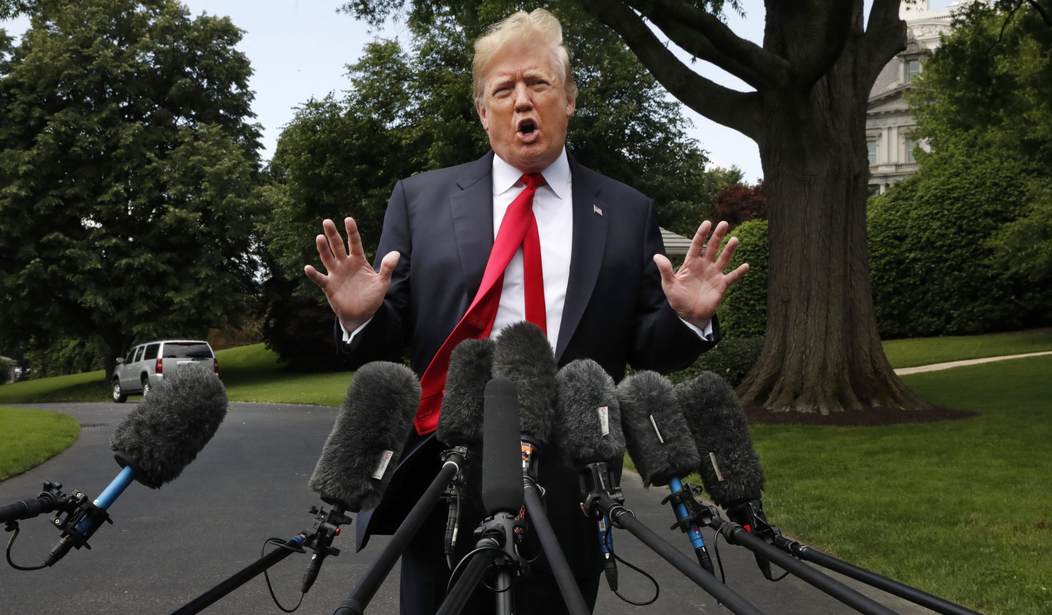WASHINGTON — A federal judge ruled today that President Trump cannot block his critics on Twitter because his feed is a “public forum” protected by the First Amendment.
Last July, the Knight First Amendment Institute at Columbia University filed a lawsuit in the Southern District of New York on behalf of seven individuals arguing that blocking users on the @realDonaldTrump account who disagreed with the president’s policies violated freedom of speech.
The blocked plaintiffs are Maryland professor Philip Cohen, Tennessee Dr. Eugene Gu, Seattle songwriter Holly Figueroa, New York comedy writer Nicholas Pappas, Pittsburgh author Joseph Papp, D.C. legal analyst Rebecca Buckwalter-Poza, and Houston police officer Brandon Neely.
“When I found out the president blocked me, it felt as though my opinion didn’t matter,” Neely said last year. “After devoting five years of my life to serving this country, the president — who is supposed to represent the views of all Americans — did not care what I had to say.”
The Knight Institute argued that by Trump hitting the block button, he was violating the plaintiffs’ right to petition their government for redress of grievances.
“The First Amendment applies to this digital forum in the same way it applies to town halls and open school board meetings,” said Jameel Jaffer, the Knight Institute’s executive director, when the lawsuit was filed. “The White House acts unlawfully when it excludes people from this forum simply because they’ve disagreed with the president.”
The lawsuit was filed against Trump, now-former communications director Hope Hicks, White House press secretary Sarah Huckabee Sanders, and White House social media director Dan Scavino.
Today, senior judge for the U.S. District Court for the Southern District of New York Naomi Reice Buchwald, who has served on the court since 1999, agreed with the Knight Institute.
“This case requires us to consider whether a public official may, consistent with the First Amendment, ‘block’ a person from his Twitter account in response to the political views that person has expressed, and whether the analysis differs because that public official is the President of the United States. The answer to both questions is no,” she wrote in the ruling.
Buchwald rejected the White House claim that the plaintiffs did not meet standing to bring the action against the president. “They have experienced a legally cognizable injury, those injuries are traceable to the President and Daniel Scavino’s conduct, and a favorable judicial decision on the merits is likely to redress those injuries,” she wrote.
“We then proceed to the substance of plaintiffs’ First Amendment claims. We hold that portions of the @realDonaldTrump account — the ‘interactive space’ where Twitter users may directly engage with the content of the President’s tweets — are properly analyzed under the ‘public forum’ doctrines set forth by the Supreme Court, that such space is a designated public forum, and that the blocking of the plaintiffs based on their political speech constitutes viewpoint discrimination that violates the First Amendment. In so holding, we reject the defendants’ contentions that the First Amendment does not apply in this case and that the President’s personal First Amendment interests supersede those of plaintiffs,” the ruling continued.
Buchwald found that while the court rejected the White House’s “categorical assertion that injunctive relief cannot ever be awarded against the President, we nonetheless conclude that it is unnecessary to enter that legal thicket at this time.”
“A declaratory judgment should be sufficient, as no government official — including the President — is above the law, and all government officials are presumed to follow the law as has been declared,” she wrote.
Trump established his account in March 2009 and kept using it after being elected president. A separate White House account tweets official administration announcements.
Buchwald found that the plaintiffs hadn’t established standing against Sanders, as she doesn’t have access to Trump’s Twitters account. Scavino, however, “unquestionably has access to the @realDonaldTrump account and participates in its operation.”
“The record definitively establishes that the plaintiffs’ injuries-in-fact are directly traceable to the President’s actions,” she wrote. “The causation requirement is therefore amply satisfied as to the President.”
Trump and Scavino’s control over the @realDonaldTrump account is “governmental,” the ruling found, as the account is identified as belonging to the president and the tweets are official records that must be preserved under the Presidential Records Act. “The President presents the @realDonaldTrump account as being a presidential account as opposed to a personal account and, more importantly, uses the account to take actions that can be taken only by the President as President.”
Jaffer said he was “pleased” with the court’s “careful application of core First Amendment principles to government censorship on a new communications platform.”
“The president’s practice of blocking critics on Twitter is pernicious and unconstitutional, and we hope this ruling will bring it to an end,” he said.
Trump has not yet tweeted about the ruling.









Join the conversation as a VIP Member